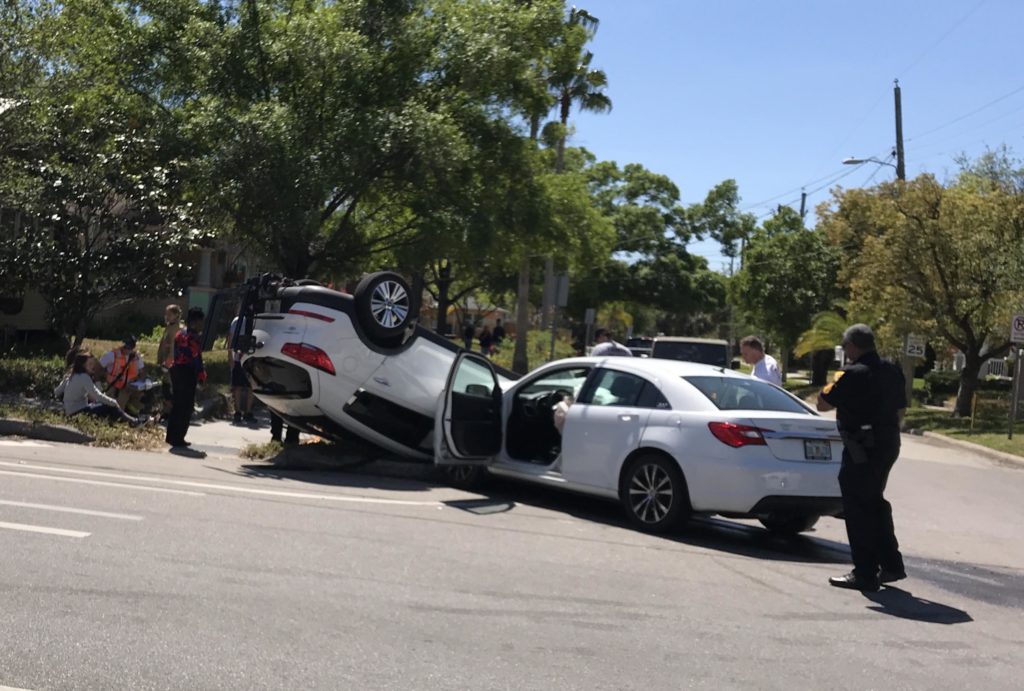News
Liens on Personal Injury Settlements
 Imagine you’re in an accident, sustain a serious injury, go see a lawyer and are told you can not recover the full value of your damages because the person who caused the accident didn’t have enough insurance. Unfortunately, as a Florida personal injury lawyer this is a scenario I see all the time. It’s especially bad because Florida is one of the few states in the country that does not require Florida drivers to carry bodily injury liability coverage. Read my April 2017 article on the subject here.
Imagine you’re in an accident, sustain a serious injury, go see a lawyer and are told you can not recover the full value of your damages because the person who caused the accident didn’t have enough insurance. Unfortunately, as a Florida personal injury lawyer this is a scenario I see all the time. It’s especially bad because Florida is one of the few states in the country that does not require Florida drivers to carry bodily injury liability coverage. Read my April 2017 article on the subject here.
For years, in such a scenario where a client receives less than the full value of their injuries because of a lack of sufficient insurance, comparative negligence or a myriad of other situations, we’ve been able to negotiate reductions of liens asserted by our clients’ health insurance carriers. The logic being, if a client isn’t going to get full compensation for his/her injuries, why should a health insurance company get their lien paid back at 100%?
The Agency of Health Care Administration (AHCA) which administers Florida Medicaid has fought such reductions for years. Claiming that a Florida state statute specifically applicable to Medicaid reimbursements meant they didn’t have to follow the same equitable approach most other health insurance carriers take. See Florida Statute §409.910(11)(f). Other states have done the same with their Medicaid programs. But the United States Supreme Court has consistently struck back and limited reimbursement to only those settlement sums that were for past medical bills, not portions of a settlement that were for other damages such as pain and suffering, lost wages or even future medical care. See 42 U.S.C. §1396p(a)(1) (2012); Arkansas Department of Health and Human Services v. Ahlborn, 547 U.S. 268 (2006); See also Wos v. E.M.A., 133 S. Ct. 1391 (2013); Some Florida Courts have reached the same outcome. See Smith v. Agency for Healthcare Administration, 24 So. 3d 590 (Fla. 5th DCA 2009); Russell v. Agency for Healthcare Administration, 23 So. 3d 1266 (Fla. 2d DCA 2010); Davis v. Roberts, 130 So. 3d 264 (Fla. 5th DCA 2013) and Federal Judge Mark E. Walker, of the United States District Judge, United States District Court, Northern District of Florida, in Gallardo v. Dudek, Case No. 4:16-cv-116-MW-CAS.
I’m happy to report that the Florida Supreme Court recently held that AHCA can only seek reimbursement for Florida Medicaid liens for portions of a settlement that are for past medical bills, not for any other portion of the settlement that may be for non-economic damages, lost wages, or future medical bills. See Giraldo v. AHCA, No. SC17-297. You can read the Court’s ruling here.
This is a right and just outcome for the Florida consumer. It’s an outcome that I was able to get for a client of mine in an administrative hearing before the Division of Administrative Hearings in Tallahassee after over a year of delays by AHCA. But it’s much better for all of my clients now that the Florida Supreme Court has spoken on the subject and provided binding precedent for other Florida courts to follow.
Josh Chilson is a partner in Johnson Pope’s Clearwater office. He is a respected leader in the legal community having served as the President of the Clearwater Bar and currently representing the Sixth Judicial Circuit on the Florida Bar Board of Governors. He focuses his practice on representing Floridians injured in accidents and those seeking Social Security Disability benefits. He has been recognized by Florida Super Lawyers and Florida Trend’s Legal Elite and is members of the Million Dollar and Multi-Million Dollar Advocates Forums.
Disclaimer: The purpose of this blog is to share information and opinions of the author about Florida law related to personal injury and Social Security disability. Reading this blog does not create an attorney-client relationship between the reader and the author and its contents are not legal advice. Although, the author will use best efforts to ensure that the case law and statutes referenced are up to date when a blog entry is posted, it is possible that the case law and statutes are or will become outdated, repealed or overruled over time. This blog discusses general situations and is not a substitute for legal advice that relates to your specific situation. This blog is not intended to be advertising.

